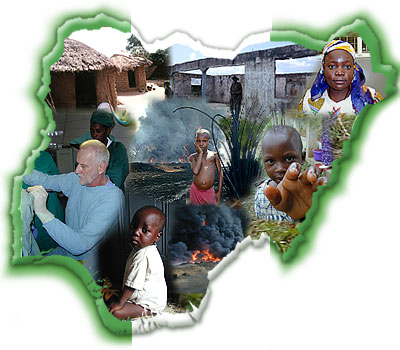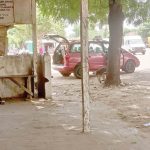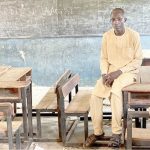Our country was the green pasture to which hordes of citizens from countries in the West African sub-region once flocked to in droves. They came, they found the green pasture and a good home and Nigeria relished the accolade of being a big brother to poorer African countries.
But alas, no condition is permanent; not for countries and not for individuals. Things have changed. We cannot pretend to be a big brother anymore because ours is no longer the green pasture. It is now more or less the brown pasture that repels, turning its proud citizens into desperate men and women in search of green pastures elsewhere in the world.
- 9th House of Representatives: Ambitious legislature in turbulent times
- Firmino, Salah double as Liverpool hit seven in Palace demolition
This is what you get when a country squanders its enormous riches and becomes, in the ringing words of the late General Sani Abacha’s coup speech, “a beggar nation.” We live with the great irony of Nigeria being the biggest economy in Africa and yet the poor capital of the world. These things do have a way of not adding up. One hundred million of its 206 million people are extremely poor. We are clutching at the straws of huge foreign loans as the merciless flood of economic recession pushes us downstream.
In the circumstances, two serious of human problems are now seriously aggravated: illegal immigration and human trafficking. More and more of our desperate citizens are finding ways, mostly illegal, to escape the harsh conditions at home; and more and more young Nigerians, mostly young girls, are being trafficked in large numbers. The bright lights of better life in other countries beckons and like the moths, our young people cannot resist the temptation to go hither and make something of their young lives.
No one can blame those who want to escape to other countries, some with the false assurance that there is gold to be picked up from the pavements there. It is not much comfort that these problems have a long history. They still constitute our national shame. In the eighties, our universities lost some of their best professors and senior lecturers to universities in other countries in what was known as brain drain. They were pushed to it by the poor conditions in our public universities. Our universities have never recovered from that wave of brain drain.
The situation has gotten even much worse. No one should be surprised if a new wave of devastating brain wave hits the institutions sooner than later. The poor conditions of service and an environment not conducive to learning and research that caused the first brain wave also drove ASUU to call out its members on strike many moons ago. If there is anything permanent about our public universities, it is the frequency with which lecturers throw away their chalk in despair and frustration. Protracted negotiations between the lecturers and the federal government to end the strike have been bogged down by what appears to be continued bad faith on the part of the federal government. Our children and wards languish in uncertainty about their education. It is no way for a country to grow its education and produce young people sound in learning.
Nigeria was the intellectual hub on the African continent. Great scholars from Europe and the United State of America found our university system conducive to learning and research and together, they produced some of our great intellectuals in every branch of academics, who in turn produced the new generation of our intellectuals. Again, we lost that pre-eminent position to politics and the poor appreciation of the place of the universities in focused and meaningful national development. We reduced our universities to wretched secondary schools and turned them into degree mills rather than centres of great learning. No foreign scholar worth his academic salt would even think of coming to Nigeria any more.
Sometime in 2018, CNN reported on thousands of Nigerians found in the harsh and inhuman environment of slave camps in Libya. Their dream of a better life elsewhere had been turned into a nightmare; instead of a better life, fate served them with a worse life. The federal government repatriated many of them home. Wonderful as that was, it solved no problems. The pasture is still brownish, not greenish. It can only get worse, forcing more and more young people into a desperate search for better life elsewhere where they end up in sub-human conditions, desperate and broken in body and spirit.
It appears that we are in for a new wave of illegal immigration by desperate young men and women in search of greener pastures. Abdullahi Usman, controller of immigration service at the Murtala Muhammed International Airport, Lagos, spoke last week about the increase in human trafficking and illegal immigration. These young men and women are gambling with their lives and their future because the alternative of living at home in despair is not a viable option for them. Some of them end up in jail for immigration, drug trafficking and other offences in other countries. You can find them in jails in Europe and South-East Asia. They do our national image no good.
We lost it in the years that oil wealth boomed and Nigeria was the place to be for those whose countries could not adequately provide for them. The Ghanaians were here because their economy made life hard and brutish for them. They are no longer here because they managed to turn their economy around and they have no reasons to run back to Nigeria after their mass expulsion from our country in the second republic. It is now the country we run to for the proper and uninterrupted education of our children and wards.
The federal government cannot stem this tide of illegal immigration and human trafficking because there is no magic wand for reversing our social and economic fortunes. We remain now and in the foreseeable future, a poor nation with narrow employment and other opportunities for young people. We are still a nation divided into the desperately poor and the stupendously wealthy. We are still a nation in which the sons and daughters of the have-nots do not have; and those of the haves, have. We still squander our riches and thus fail to harness our human and natural resources to build a great nation – rich in human and material resources.
Our country cannot continue this way because the present casts a dark shadow on our future. We do not have to be rich to properly manage our national economy to the greater benefit of the children of the both the poor and the rich. An easy resort to borrowing to pay bill is actually strange to a focused economic management. We do not have to be rich to create opportunities for our young people, given our vast arable land that supports agriculture and agro-allied industries. But we need the will and the determination to quit paying lip service to our national development and get down in the mud, if possible, to radically change our economic and other fortunes and offer our young people a viable alternative to their desperate search for green pastures abroad. Ghana is a good example of this possibility. If it did it, so can we.

 Join Daily Trust WhatsApp Community For Quick Access To News and Happenings Around You.
Join Daily Trust WhatsApp Community For Quick Access To News and Happenings Around You.


